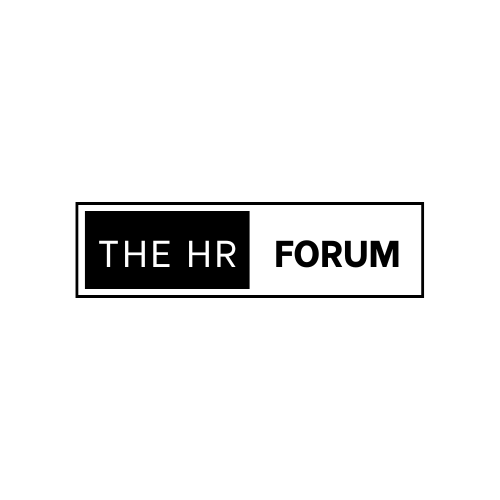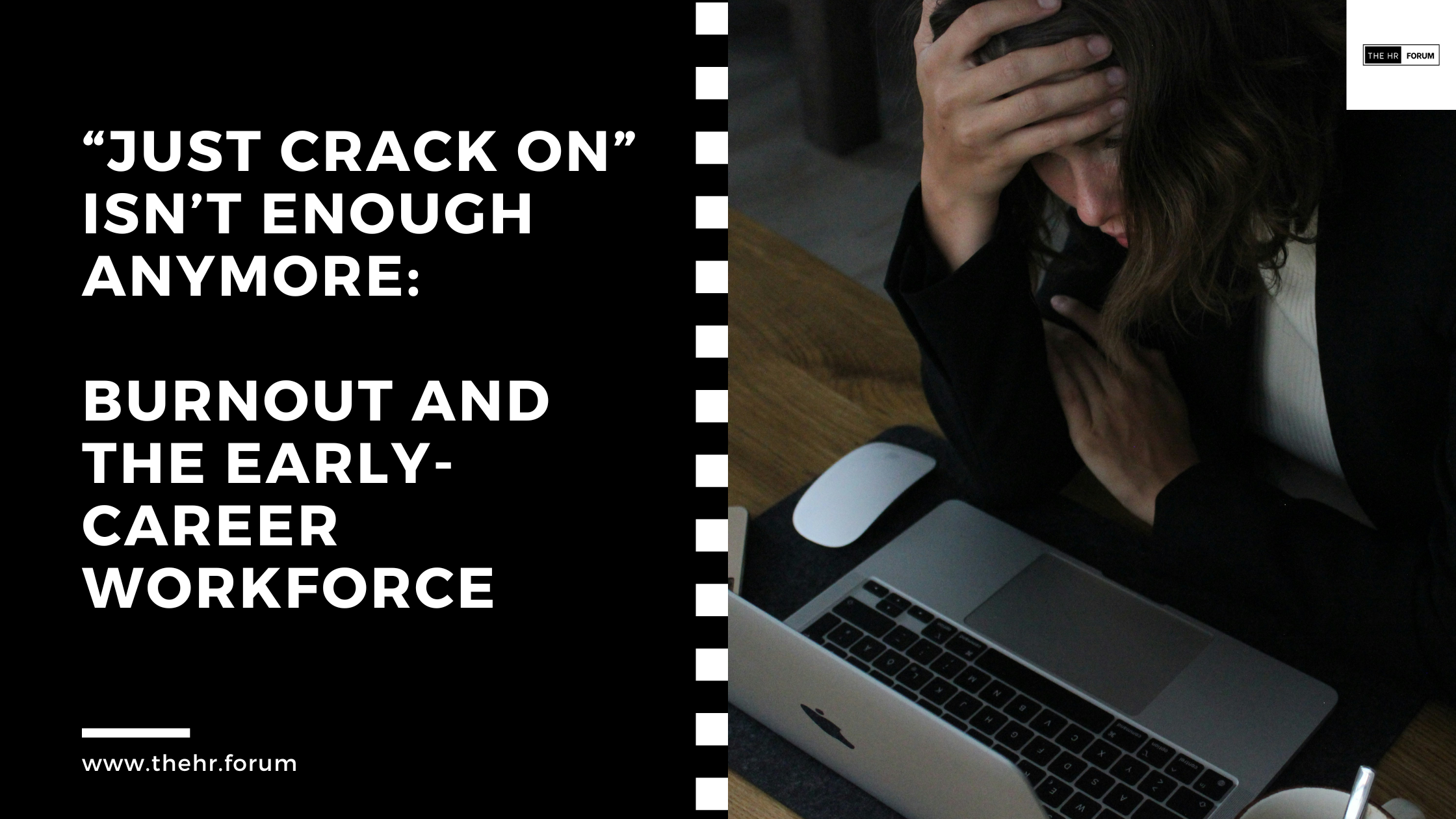“Just crack on” isn’t enough anymore: Burnout and the Early-Career Workforce
Burnout isn’t new, but it’s hitting early-career employees harder than ever. Research shows that employees aged 18 to 24 are now more likely than any other age group to take time off for mental health reasons.
Stress, workload pressure, and disconnection are shaping the early years of many careers, and not in a positive way.
This isn’t just about building resilience.
It’s about whether workplaces are actually set up to support early-career talent.
Why are younger workers burning out?
From our conversations with HR leaders and early-career staff, several recurring issues stand out:
- Fear of speaking up: Many employees don’t feel comfortable raising mental health or workload concerns with their manager.
- Overworking: Some are clocking unpaid overtime to keep up, while others juggle multiple jobs just to make ends meet.
- Difficulty switching off: Many struggle to disengage at the end of the day, more so than their more experienced colleagues, which accelerates stress and burnout.
The consequences are clear: these employees feel overwhelmed, unsupported, and at risk of burning out before they’ve even fully established their careers.
This isn’t just a wellbeing issue.
It’s a retention issue, a productivity issue, and a leadership issue.
The HR role in tackling early-career burnout
If you work in HR, you can actively change this.
Supporting early-career staff doesn’t require reinventing the wheel.
Small, targeted actions can make a huge difference.
1. Train line managers to lead open conversations
Managers are often the first, and sometimes only, point of contact for employees struggling with stress or workload. But many line managers lack confidence in discussing mental health.
Invest in training that equips managers to:
- Recognise early signs of stress or burnout.
- Hold regular check-ins with honest, open dialogue.
- Respond effectively without judgment or dismissiveness.
2. Build trust and psychological safety
Employees need to know it’s safe to ask questions, admit mistakes, or seek support. Trust doesn’t come from policy documents; it comes from everyday interactions.
Consider:
- Encouraging managers to promote openness.
- Creating small peer networks or buddy systems for early-career staff.
- Regularly asking for feedback on workload, wellbeing, and work-life balance.
3. Provide guidance, not just autonomy
Many organisations assume employees “just know” how to manage their workload, emails, and competing priorities. The reality is that early-career staff often lack experience navigating these demands.
Practical support can include:
- Clear expectations around deadlines and priorities.
- Time-management workshops or resources.
- Guidance on how to manage communication channels and avoid digital overload.
4. Re-evaluate flexibility and boundaries
Flexible working policies are widespread, but flexibility doesn’t automatically translate to healthier working habits. Some staff need reassurance that setting boundaries is acceptable.
Ask yourself:
- Do your early-career employees feel able to switch off without repercussions?
- Are workloads structured so they can actually make use of flexible hours?
- Is working late or checking emails at weekends quietly rewarded or expected?
Listening and acting are critical
The most effective way to support early-career employees is simple: listen to them and then act.
Run short, focused surveys or host informal listening sessions.
Ask:
- How manageable is your workload?
- Are you able to take breaks when needed?
- Do you feel supported by your manager and team?
Then take the results seriously. If recurring issues are highlighted, implement practical solutions rather than generic wellbeing initiatives.
Why it matters for business
Supporting early-career employees isn’t just the right thing to do; it’s business critical.
- Retention – High burnout leads to early departures. Replacing employees costs time and money.
- Productivity – Overwhelmed staff are less focused, more error-prone, and disengaged.
- Employer brand – Organisations known for poor early-career support struggle to attract top talent.
- Future leadership pipeline – Today’s junior staff are tomorrow’s leaders. Neglecting their well-being risks a weaker leadership bench in the future.
How to make early careers a better experience
Creating a supportive environment for early-career staff doesn’t have to be complicated, but it does require intentionality:
- Be proactive – Don’t wait for burnout signs to appear. Check in regularly.
- Offer mentoring and coaching – Pair younger employees with more experienced colleagues. Knowledge sharing reduces stress and accelerates learning.
- Normalise workload conversations – Encourage honest discussions about what’s achievable within working hours.
- Embed wellbeing into the culture – Wellbeing isn’t a once-a-year workshop. It’s reflected in everyday decisions, priorities, and manager behaviours.
These employees bring energy, creativity, and potential, but they need the right support to thrive. They should leave work at the end of the day feeling motivated, not depleted.
Questions for HR leaders
- What are you doing right now to support the well-being of your early-career staff?
- Are your managers equipped to spot early signs of stress and burnout?
- Does your workplace culture encourage open conversations, trust, and guidance?
- Are you actively evaluating workloads, expectations, and flexibility to ensure employees can thrive?
Being honest about your current approach is the first step toward change. Small actions today can prevent burnout tomorrow, improve retention, and strengthen the next generation of leaders in your organisation.
Work shouldn’t break people. Especially not at the start of their careers.
Thank You
Thanks for visiting us at The HR Forum
We hope you found this post useful.
If you’d like to connect, share a post or ask a question, we’d love to hear from you.
You can drop us an email or visit us at our HR Community on Substack.
Similar Posts
If you found this post helpful, you might also like:
Should you share interview questions with candidates?
Balancing AI and Human Judgement in Recruitment
The HR Forum is brought to you by The HR Guys

